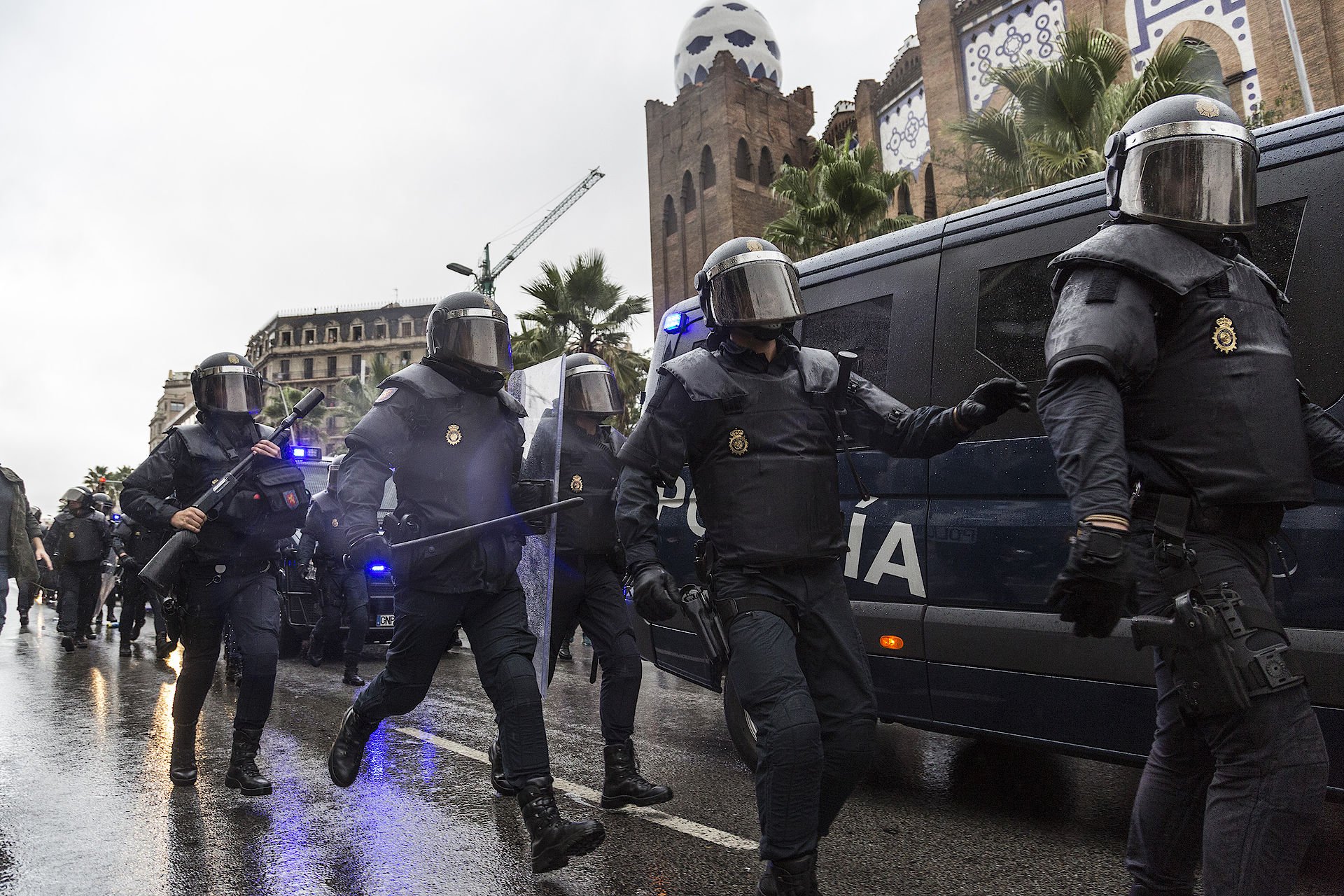After five years investigating the police use of force in the Catalan capital during the independence referendum of October 1st 2017, Barcelona judge Francisco Miralles has ordered 45 Spanish police officers to sit in the dock. According to his ruling, Miralles calls the police officers to trial over the violent actions they allegedly carried out against voters at the schools being used as voting stations. More than five years after the referendum, there are still no police officers convicted of injuring a voter, and instead there are voters convicted of assaulting officers. On the other hand, Francisco Miralles has decided to close the cases against twenty other officers.
The ruling recalls the Spanish law LO 2/1986 on how police officers must act in situations such as the Catalan referendum, which states that they must "prevent any abusive, arbitrary or discriminatory practice that involves physical or moral violence", that they are obliged to maintain "correct and careful treatment of citizens", and reminds them that "they will only be able to use weapons in situations in which there is a rationally serious risk to their life".
On October 1st, the Spanish National Police took action at 27 polling stations in Barcelona, and almost all of these resulted in complaints from members of the public. The judge's interlocutory analysis analyzes the complaints school by school. For example, in the case of the CEIP Prosperitat primary school, in the Nou Barris district of Barcelona, the judge found that, according to the images registered, "deficits can be seen in the performance with respect to the regulations and protocols set out above". According to Miralles, at the Prosperitat school a police officer used force against voters "without prior warning and without negotiation." In some other cases, the judge describes the actions of the agents as "clearly disproportionate", as in the case of the INS Pau Claris secondary school. Miralles highlights actions that took place at this school near the Arc de Triomf, such as "striking the face of gathered people or throwing them down stairs".
Judge discards the crime of property damage
In his 69-page interlocutory ruling, the judge discusses, one by one, all the school centres where there were incidents with the police. In just two of the 27, there were no incidents. The magistrate also ruled out taking any further action against anyone for damage to property, which was subject to complaints due to the destruction caused by the police to the doors of the schools which they sought to enter to confiscate ballot boxes. According to the judge, the court order allowed the locks and doors to be forced to gain entry. This ruling means that the Catalan government will be set aside as a private prosecution over these damages, as happened months ago with the Barcelona City Council.
Finally, the judge does not leave any member of the public under investigation for crimes of assault on a police officer or disobedience, and thus also discards the private prosecution undertaken by a police union, Sindicato Profesional de Policía.
From an investigation lasting more than five years, the judge concludes that the policemen accused may have committed not only "minor or less serious crimes of injury", but also those foreseen in articles 174 and 175 of the Penal Code: torture and crimes against moral integrity. Judge Miralles has now given forty days to the public prosecutors and the private prosecution representing the injured members of the public to present indictments against the forty-five officers.

